Peugeot 5008 vs Toyota RAV4 - Differences and prices compared
Compare performance (325 HP vs 306 HP), boot space and price (37600 £ vs 35100 £ ) at a glance. Find out which car is the better choice for you – Peugeot 5008 or Toyota RAV4?
Costs and Efficiency:
Looking at overall running costs, both models reveal some interesting differences in everyday economy.
Toyota RAV4 has a barely noticeable advantage in terms of price – it starts at 35100 £ , while the Peugeot 5008 costs 37600 £ . That’s a price difference of around 2460 £.
Fuel consumption also shows a difference: Toyota RAV4 manages with 1 L and is therefore clearly more efficient than the Peugeot 5008 with 2.70 L. The difference is about 1.70 L per 100 km.
As for electric range, the Peugeot 5008 performs significantly better – achieving up to 669 km, about 594 km more than the Toyota RAV4.
Engine and Performance:
Power, torque and acceleration say a lot about how a car feels on the road. This is where you see which model delivers more driving dynamics.
When it comes to engine power, the Peugeot 5008 has a slight edge – offering 325 HP compared to 306 HP. That’s roughly 19 HP more horsepower.
In acceleration from 0 to 100 km/h, the Toyota RAV4 is barely noticeable quicker – completing the sprint in 6 s, while the Peugeot 5008 takes 6.50 s. That’s about 0.50 s faster.
In terms of top speed, the Peugeot 5008 performs slightly better – reaching 220 km/h, while the Toyota RAV4 tops out at 180 km/h. The difference is around 40 km/h.
Space and Everyday Use:
Whether family car or daily driver – which one offers more room, flexibility and comfort?
Seats: Peugeot 5008 offers noticeable more seating capacity – 7 vs 5.
In curb weight, Peugeot 5008 is minimal lighter – 1700 kg compared to 1745 kg. The difference is around 45 kg.
In terms of boot space, the Toyota RAV4 offers clearly perceptible more room – 580 L compared to 348 L. That’s a difference of about 232 L.
In maximum load capacity, the Peugeot 5008 performs noticeable better – up to 2232 L, which is about 542 L more than the Toyota RAV4.
When it comes to payload, Peugeot 5008 barely noticeable takes the win – 640 kg compared to 600 kg. That’s a difference of about 40 kg.
Who wins the race in the data check?
The Peugeot 5008 is barely ahead in the objective data comparison.
This result only shows which model scores more points on paper – not which of the two cars feels right for you.
Costs and Consumption
View detailed analysis
Engine and Performance
View detailed analysis
Dimensions and Body
View detailed analysis
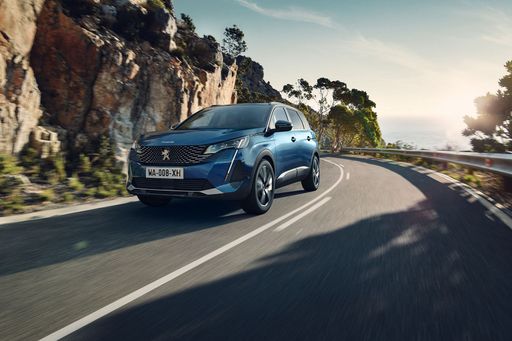
Peugeot 5008
Peugeot 5008
The Peugeot 5008 blends Peugeot's sharp design with the space and versatility families actually need, wrapping clever packaging and a premium-feeling cabin in a crisp, SUV-like silhouette. It drives with more poise than you'd expect from a people carrier, serves up practical touches and flexible seating for everyday chaos, and still looks good when parked outside the school gates.
details

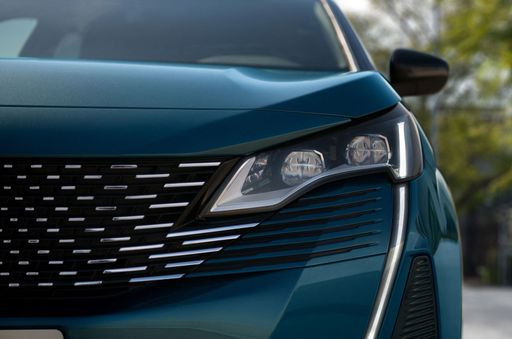

Toyota RAV4
The Toyota RAV4 feels like a sensible friend on the road, marrying dependable practicality with a dash of SUV personality that keeps daily driving from turning dull. Comfortable and easy to live with, it looks tough without shouting and quietly gets the job done — a sensible pick for buyers who want versatility without drama.
details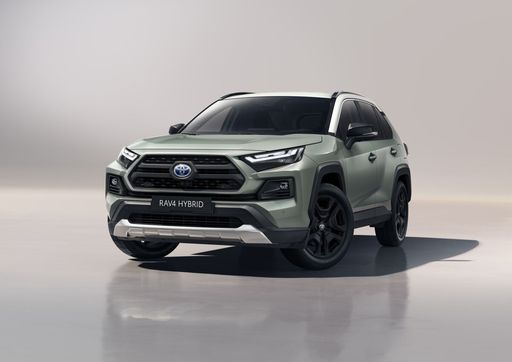
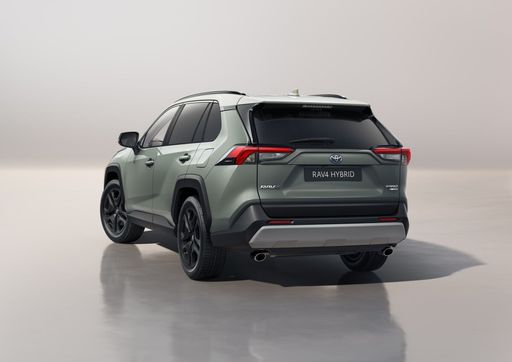
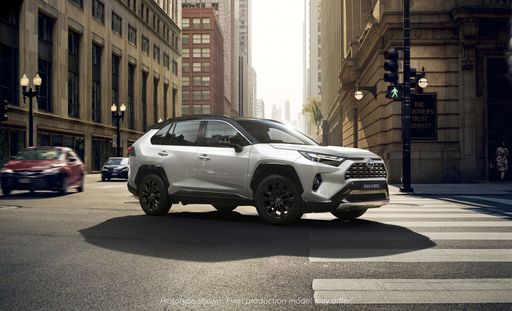
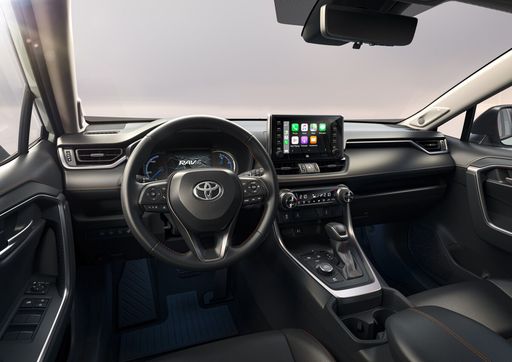
Costs and Consumption |
|
|---|---|
|
Price
37600 - 54200 £
|
Price
35100 - 55700 £
|
|
Consumption L/100km
2.7 - 5.6 L
|
Consumption L/100km
1 - 5.6 L
|
|
Consumption kWh/100km
17.8 - 18.6 kWh
|
Consumption kWh/100km
-
|
|
Electric Range
78 - 669 km
|
Electric Range
75 km
|
|
Battery Capacity
0.4 - 96.9 kWh
|
Battery Capacity
-
|
|
co2
0 - 127 g/km
|
co2
22 - 128 g/km
|
|
Fuel tank capacity
55 L
|
Fuel tank capacity
55 L
|
Dimensions and Body |
|
|---|---|
|
Body Type
SUV
|
Body Type
SUV
|
|
Seats
7
|
Seats
5
|
|
Doors
5
|
Doors
5
|
|
Curb weight
1700 - 2344 kg
|
Curb weight
1745 - 1910 kg
|
|
Trunk capacity
294 - 348 L
|
Trunk capacity
520 - 580 L
|
|
Length
4791 mm
|
Length
4600 mm
|
|
Width
1895 mm
|
Width
1855 mm
|
|
Height
1694 mm
|
Height
1685 mm
|
|
Max trunk capacity
2178 - 2232 L
|
Max trunk capacity
1604 - 1690 L
|
|
Payload
596 - 640 kg
|
Payload
390 - 600 kg
|
Engine and Performance |
|
|---|---|
|
Engine Type
Electric, Petrol MHEV, Plugin Hybrid
|
Engine Type
Full Hybrid, Plugin Hybrid
|
|
Transmission
Automatic
|
Transmission
Automatic
|
|
Transmission Detail
Reduction Gearbox, Dual-Clutch Automatic
|
Transmission Detail
CVT
|
|
Drive Type
Front-Wheel Drive, All-Wheel Drive
|
Drive Type
Front-Wheel Drive, All-Wheel Drive
|
|
Power HP
145 - 325 HP
|
Power HP
218 - 306 HP
|
|
Acceleration 0-100km/h
6.5 - 10.2 s
|
Acceleration 0-100km/h
6 - 8.4 s
|
|
Max Speed
170 - 220 km/h
|
Max Speed
180 km/h
|
|
Torque
230 - 511 Nm
|
Torque
-
|
|
Number of Cylinders
3 - 4
|
Number of Cylinders
4
|
|
Power kW
107 - 239 kW
|
Power kW
160 - 225 kW
|
|
Engine capacity
1199 - 1598 cm3
|
Engine capacity
2487 cm3
|
General |
|
|---|---|
|
Model Year
2024 - 2025
|
Model Year
2024 - 2025
|
|
CO2 Efficiency Class
A, D, B
|
CO2 Efficiency Class
D, B
|
|
Brand
Peugeot
|
Brand
Toyota
|
Is the Peugeot 5008 offered with different drivetrains?
Available configurations include Front-Wheel Drive or All-Wheel Drive.




